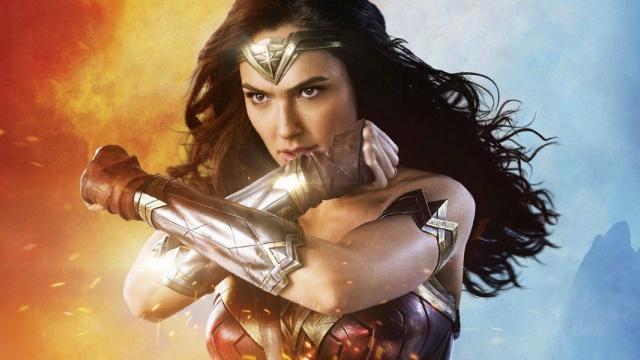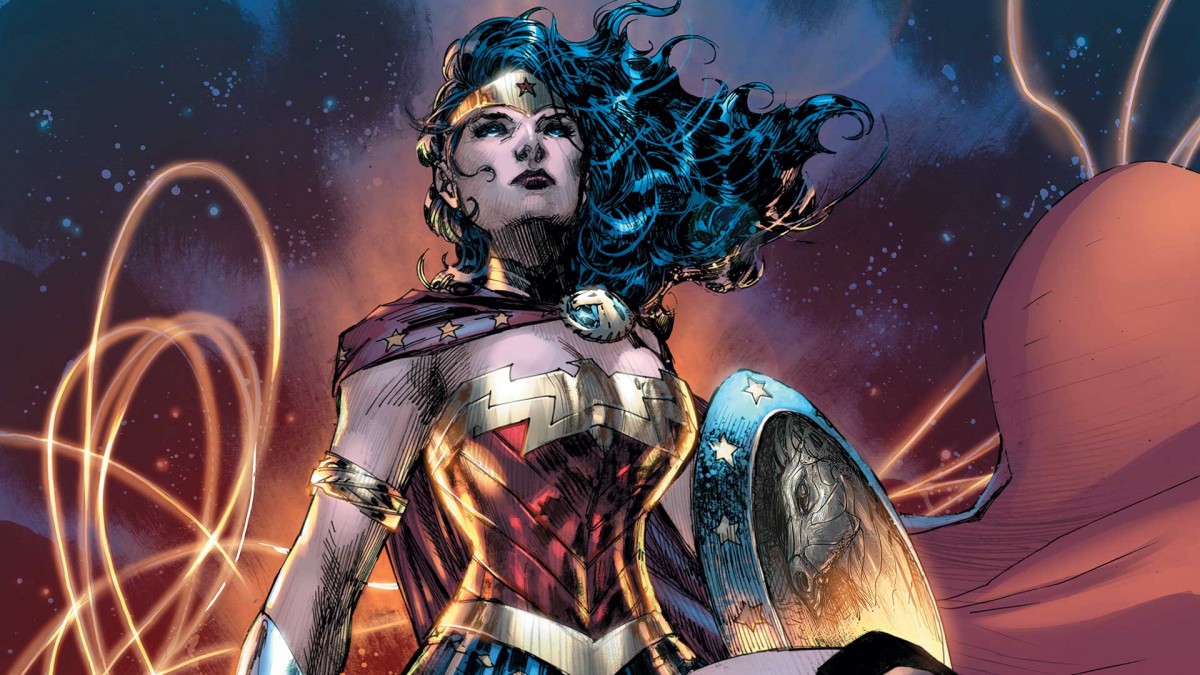
In the climactic sequence of "Wonder Woman" where a confrontation with the villain is all but a certainty, our hero mustn't just punch her way out and throw in a witty quip, but instead defend humanity as a whole, the good and the bad. It’s belief vs belief, a battle of wills that plays out beyond the physical. It’s best to be this way, as superhero tales and classic fables of Greek mythology are more substantial in what is represented – and less about the fights themselves. Comics are the modern legends of the immortals, and thus ought to teach morals rather than serve merely as clusters of escapades (which they can be as well, with levity). In this fourth installment of the newly minted DC extended cinematic universe (starting with "Man of Steel"), existentialism and doubt are finally replaced with tried and true confidence and unwavering strength of character.
I hope by now that we’ve all seen the internet memes of Wonder Woman punching out Trump (a new take on Captain America punching out Hitler), because by itself the image says so much about where we’re at as a country, and where we could be if we work hard enough. "Wonder Woman" takes place towards the end of WWI, as the peace armistice is being prepared. Diana Prince (Gal Gadot) leaves her homeland to end the war by defeating the one whom she believes to be behind it all: the God of War, Ares. On her way across Europe, she rescues villagers and overpowers the forces that control men’s hearts – yes, through awesome action, but more importantly, by lead example. She is passionate, she is proud, she is righteous and she has no time for grand questions on purpose and place; there is simply too much the world needs at the moment. Roll up the sleeves and get to it already.
It’s fun to tear apart and piece back together the hero definition, as "Watchmen" and "Batman v Superman" do, but at what point does a comic turned graphic novel become overkill? At what point does challenge to story become a dreary trial for the audience? It seems that DC and Warner Bros as of late have been testing our patience with grit after grit, trying to mold "Superman" into "Saving Private Ryan" and "Batman" into "Death Wish". Not that adult orientation isn’t interesting or appreciated, but why are good ol' fashioned heroics considered immature or too childish? Adults have much to learn and can use role models too, you know.
Director Patty Jenkins (of the Oscar-winning "Monster") understands this, and through the fog of war, through the gunsmoke and bomb blasts, is able to maintain – and build upon – a shocking development in cinematic superhero genre: the resonance of compassion. It’s a movie that molds the character of Wonder Woman into something like an Abe Lincoln, but with more fighting, of course.
Throughout the movie, Diana hunts for Ares, even though his existence is doubted by her male counterparts. They tell her that in war, things like good and evil are often blurry, and maybe, just maybe, people aren’t perfect. Diana struggles with this, having been brought up on crystal clear stories with no gray areas, but she is so steadfast in her beliefs that she stands her ground, even after the atrocities she witnesses. The way she argues to help others, and the way she looks at the wounded and the dead, is pure of spirit and filled with unconditional love. She experiences waves of emotion, but not necessarily rage; it’s not vengeance she seeks, but a stop to the slaughter. Where some see this as fool hearted, I see Wonder Woman as full hearted.
Far be it for me to suggest that "Wonder Woman" is a tool in the recent movement of feminine empowerment being experienced in our culture – including the massive Women’s March. But if this is the case, why is that bad? Isn’t it about time? If anything, Wonder Woman is an invitation for all to join The Resistance. To grow, to relate and to live. In this way, it is similar to Richard Donner’s original "Superman" with Christopher Reeves. In a few years we’ll know how accurate the comparison is in terms of iconography, but for now we already know that they share achingly romantic humanist ideals. Which, is to say, it matches hand in hand.
“I can save today, you can save the world!” is a line spoken to Diana at a most profound moment. I’ll leave it to other moviegoers to decipher its meaning. The most our new Superman ever got was, “This man is not our enemy.” It’s a nice gratitude, but comes with the knowledge of suspicion and pre-emptive defense. Leave it to a woman to break these walls down.
Rating: 5 / 5
Bill Arceneaux is an independent film critic and member of the Southeastern Film Critics Association. Follow him @billreviews.
3 WAYS TO SHOW YOUR SUPPORT
- Log in to post comments












